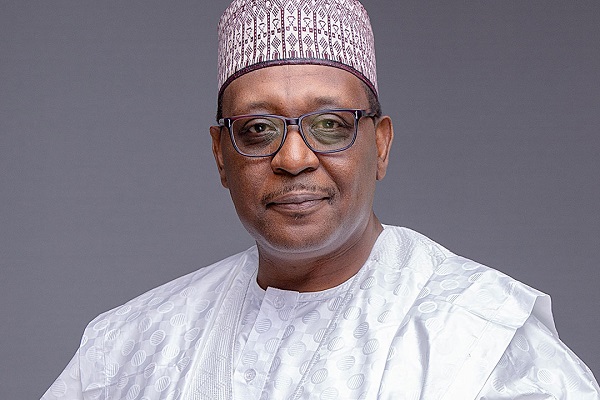
The Basic Health Care Provision Fund has announced the disbursement of ₦32 billion aimed at revitalising over 8,000 primary healthcare centres across the country. This funding push comes as the federal government intensifies efforts to strengthen basic healthcare delivery systems and expand access to essential health services for millions of Nigerians.
Chairman of the Health Commissioners Forum, Dr. Oyebanji Filani revealed the development on Monday in Abuja during the 11th meeting of the Ministerial Oversight Committee (MOC). He explained that the ₦32 billion, released in two equal tranches of ₦16 billion, would be deployed for the renovation of healthcare facilities, procurement of life-saving medical commodities, and capacity building for frontline health workers.
According to Filani, this intervention represents a major stride towards realising the Federal Government’s vision of bringing quality healthcare closer to the people.
Minister of Health and Social Welfare, Dr. Ali Pate also weighed in on the impact of the initiative, noting that over 37 million visits had been recorded at primary health centres nationwide, a testament to the growing utilisation of community-level care made possible by sustained investments.
He stressed that the results being recorded were only achievable because of collaboration among federal, state, and local governments, working in tandem with development partners and civil society to deliver affordable, quality healthcare to the Nigerian populace.
Pate said that all 36 states of the federation have aligned with the Health Sector Renewal Investment Initiative, launched by President Bola Tinubu, with local government areas fully integrated through the National Primary Health Care Development Agency-led compact. He commended governors and health commissioners for their growing commitment to the health agenda, noting that the current momentum reflects shared political will and growing emphasis on data, accountability and results. He reiterated that Nigeria’s ongoing healthcare transformation hinges on transparency and meaningful partnerships, powered by top-level political support.
Addressing concerns raised by the Global Fund’s country management support over more than 50,000 tuberculosis-positive Nigerians who are yet to begin treatment, the minister said the treatment gap was a result of improved detection efforts.
He assured that the 2025 federal budget includes provisions for drug procurement to ensure treatment scale-up. While acknowledging the testing surge, Pate stated that the country must now close the treatment gap with appropriate resources and logistics. He added that no patient should be left behind in the fight against tuberculosis.
Pate also spoke on the need to chart a path toward long-term health sector sustainability. According to him, Nigeria must gradually reduce its dependence on external donors by mobilising more domestic financing.
He said that reforms such as the removal of fuel subsidy and the introduction of a new tax bill would increase public revenue, providing the government with the fiscal room to fund health, education, and other critical sectors more effectively. He noted that it was imperative to translate political intent into action by dedicating more local funds to public health interventions.
He went on to highlight the positive impact of the President’s Executive Order on Local Manufacturing, which has made it easier to import raw materials and boosted investor confidence among pharmaceutical manufacturers. The minister said that platforms such as Medipool and state-level drug management agencies were already helping to stabilise demand visibility, ultimately strengthening Nigeria’s healthcare commodity supply chain.
He said the domestic pharmaceutical sector was beginning to respond positively and that shaping demand and encouraging local production would help reduce long-term costs and enhance medicine security.
Pate called for sustained political commitment, strong community ownership and continuous innovation to overcome remaining bottlenecks. He emphasised that while many challenges persist, Nigeria is gradually but steadily advancing toward building a resilient and inclusive health system capable of withstanding future shocks. He described the journey as far from perfect, but one with a clear mandate: to deliver health to all Nigerians without exception.
Science Nigeria recalls that at the eighth MOC meeting held in October 2024, the Federal Government approved ₦12.91 billion for disbursement across the four BHCPF gateways, namely the National Health Insurance Authority, the National Primary Health Care Development Agency, the Nigeria Centre for Disease Control and the National Emergency Medical Services and Ambulance System. The allocation was directed toward supporting essential health services, including primary care, health insurance expansion, disease surveillance, and emergency medical response for the final quarter of 2024.
By the ninth MOC meeting in December 2024, the Federal Government reported significant progress, including over 10 million Nigerians accessing BHCPF-supported services and the enrollment of 2.4 million new individuals into the national health insurance scheme, bringing the total number of insured citizens in Nigeria to 18.6 million.
During the same period, the NHIA announced a 60 per cent increase in capitation and a 40 percent increase in fee-for-service payments to enable better service delivery across accredited health facilities, though it did not specify the exact disbursement figures.
At the tenth MOC meeting in March 2025, the government approved another ₦32.88 billion disbursement to improve healthcare delivery through more than 10,000 PHCs nationwide. These funds were targeted at strengthening services such as reproductive health, immunisation, malaria treatment and emergency response activities under the four BHCPF gateways. It was also during that meeting that the government committed to full transparency by pledging to publish all disbursement data on the BHCPF portal.
In addition to online transparency tools, the government also activated independent verification agents, public finance monitoring officers and mobilised 744 local health workers across Nigeria to track how funds were used and whether services were delivered as planned. The operational guidelines for the BHCPF were also reviewed and updated, aligning the fund’s structure with the national sector-wide approach and reinforcing the three-tier collaboration framework between federal, state and local authorities.

